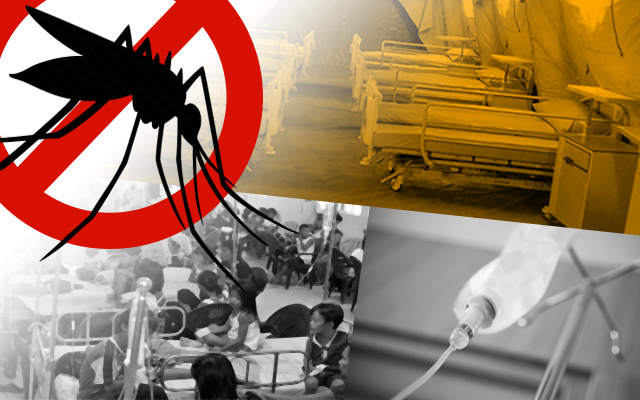Bontoc, Mountain Province – With the unpredictable weather condition experienced now and typhoons hitting the country from time to time, health officials in the capital town reminded the public to take precautions against the killer dengue.
According to World Health Organization (WHO), dengue fever- a mosquito-borne viral disease can lead to severe illness and life-threatening conditions. Accordingly, dengue fever has already become a year-round illness because of the ability of dengue-carrying mosquitoes to thrive in either dirty or clear and stagnant water stored in various containers.
Based on the report of the Municipal Epidemiology and Surveillance Unit (MESU) of the Municipal Health Office (MHO), Bontoc has recorded 86 dengue cases from January – October 11, 2021. Of the total, Barangays Bontoc Ili and Tocucan both recorded 14 dengue cases; Barangay Caluttit-13; Barangay Poblacion- 12; Barangay Talubin-seven; Barangay Mainit-six; Barangay Samoki-five; Barangay Maligcong- three; Barangay Dalican –three; Barangay Alab Oriente-two; Barangay Caneo-two. Barangays Alab Proper, Balili, Gonogon, Guina-ang have one dengue case each. One dengue case was recorded as unknown. Only Barangay Bayyo has no record of dengue cases. The highest number of dengue cases was recorded in September reaching 26.
According to Nurse I Achilles Feckleng, Jr., who is also the Designated Disease Surveillance Officer of the Municipal Health Office (MHO), all barangays have implemented the Oplan Taob. This is initiated by the Bontoc Local Government Unit (LGU) through the MHO in partnership with the concerned Barangay LGUs.
Likewise, the municipal government through its MHO in partnership with the Department of Health (DOH) – Provincial Office, Provincial Health Office (PHO), Rural Health Midwives (RHMs), Barangay Health Workers (BHWs), and barangay officials have been conducting massive Information Education and Communication (IEC) Campaign to the different barangays on the preventive measures of dengue.
With this, the MHO is encouraging the public to follow and put into practice the 4S anti-dengue method. The 4S stands for Search and destroy mosquito breeding places; Safe protection measures; Seek early consultation for fever lasting more than two days; Say yes to fogging when there is an impending outbreak.
The MHO solicited the cooperation of the community by maintaining cleanliness at their homes and their backyards; disposing of tin cans, jars, and bottles that can collect and hold water; covering water drums and pails; replacing water in flower vases; and clearing roof gutters to prevent the breeding of mosquitoes.
Likewise, Achilles enumerated some Self- protection measures to include wearing long pants and long-sleeved shirts when going out and using mosquito repellent.
Also, health officials urged suspected dengue–infected patients to seek treatment if symptoms of high fever, joint and muscle pain, weakness, skin rashes, nose bleeding, abdominal pain, vomiting, dark-colored stools, and breathing problems last for more than two days.
Health officials further mentioned that while the government is doubling its effort in the fight against dengue, it cannot do it alone. It needs the participation and commitment of the community especially in the maintenance of a clean and healthy environment.
Meanwhile, there is an existing Ordinance which they passed in 2018. This is Ordinance No. 304, s. 2018, known as the “Anti- Dengue Vector Ordinance”, an ordinance setting prevention and control measures to mitigate dengue fever cases and requiring all residents to strengthen the fight against the disease.
In support of this ordinance, an Anti- Dengue Task Force has been created to ensure firm and sustainable implementation and enforcement of the ordinance. The task force shall oversee and enforce strict implementation of the clean-up drive; coordinate with agencies or offices concerned relative to the information and awareness campaign against dengue.// Alpine L. Killa, Bontoc LGU













